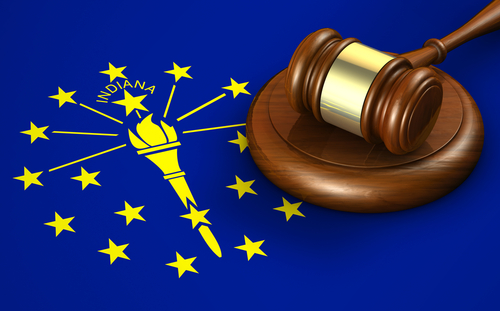5-4 Citizens United Ruling 'a Revolution in Campaign Finance Law'
The U.S. Supreme Court has ruled that corporations have a First Amendment right to expressly support political candidates for Congress and the White House.
The 5-4 ruling strikes down restrictions that had barred corporations from spending money from their general treasuries on campaign ads in the days before an election.
Justice Anthony M. Kennedy wrote the majority opinion (PDF) in the long-awaited campaign finance ruling, Citizens United v. Federal Election Commission. The opinion overrules Supreme Court precedent.
“When government seeks to use its full power, including the criminal law, to command where a person may get his or her information or what distrusted source he or she may not hear, it uses censorship to control thought,” Kennedy said. “This is unlawful. The First Amendment confirms the freedom to think for ourselves.”
The New York Times calls the Citizens United decision “a doctrinal earthquake,” while SCOTUSblog founder and appellate litigator Tom Goldstein writes that it represents “a small revolution in campaign finance law.” The Associated Press says the ruling will also likely allow labor unions to spend more freely on campaigns.
The ruling upholds the right of a conservative group known as Citizens United to broadcast a 90-minute video criticizing Hillary Clinton. Citizens United wanted to broadcast its video, called Hillary: The Movie, through on-demand cable television.
The ruling overturns a 1990 Supreme Court decision, Austin v. Michigan Chamber of Commerce, which had upheld a ban on corporate spending to influence state races. It also overturns part of the 1993 decision McConnell v. Federal Election Commission that had upheld the federal restrictions on corporate independent expenditures.
Kennedy was joined in the First Amendment ruling by Chief Justice John G. Roberts Jr. and Justices Samuel A. Alito Jr., Antonin Scalia and Clarence Thomas. All the justices except Clarence Thomas agreed with a portion of Kennedy’s opinion upholding corporate disclosure requirements, according to The BLT: The Blog of Legal Times.
“The government may regulate corporate political speech through disclaimer and disclosure requirements, but it may not suppress that speech altogether,” Kennedy wrote.
In his partial dissent, Thomas said Kennedy’s opinion did not go far enough to protect anonymous political speech.
Roberts wrote a concurrence, joined by Justice Samuel A. Alito Jr., explaining why Austin should be overruled despite the importance of precedent. Free speech rights are not confined to individuals, he said. “The First Amendment protects more than just the individual on a soapbox and the lonely pamphleteer,” he wrote.
Justice John Paul Stevens dissented from the First Amendment ruling, joined by Justices Ruth Bader Ginsburg, Stephen G. Breyer and Sonia Sotomayor. He said that Citizens United had other alternatives under the campaign finance restriction struck down by the majority. Citizens United could have run the Hillary Clinton film outside the 30-day pre-election window when corporate electioneering was restricted. It could have promoted the video through a political action committee.
“The basic premise underlying the court’s ruling is its iteration, and constant reiteration, of the proposition that the First Amendment bars regulatory distinctions based on a speaker’s identity, including its ‘identity’ as a corporation,” Stevens wrote. “While that glittering generality has rhetorical appeal, it is not a correct statement of the law.”
Previous coverage at ABAJournal.com:
New Predictions of an Impending Campaign Finance Ruling
Sotomayor’s ‘Provocative Comment’ Questioned Corporate Law Foundations
Campaign Finance Law Takes a Beating in Supreme Court Arguments



